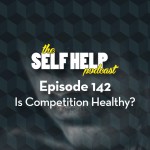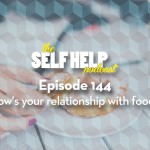You are what you eat… …or so the say.
Carnivores, pescatarians, vegetarians, fruitarians, vegans, all have good reasons for following their own dietary paths. For some food is just fuel while for others it is a culinary delight. Some fear food and the effects that it will have on their bodies and they become anorexic. While others become bulimic and throw up all that they eat. Thousands and thousands of people follow diets and detox plans and there are those who do or don’t eat certain foods for religious reasons. Food is certainly an emotive issue that effects us all everyday even if we only see food as fuel and a chore that must be done.
What do you eat and why?
This week on the podcast Ed and I were joined by Marissa, who is the director of the Vegan Lifestyle Association – Tea Lover -and Public Health, Nutrition and Psychology researcher. We were discussing food, what we eat and why we eat it. We each came from differing eating habits Ed as a carnivore, me as a veggie with some leanings towards pescatarianism and Marissa as a vegan.
Why not eat meat?
My own feelings about not eating meat are not to do with health but with the ethical issue of killing animals to eat. I had a farm for a while and faced the issue of meat eating head on. I think if we all had to kill our own meat then many of us would become vegetarian. When you have raised an animal and know it well, they become more than animals they are people, personalities and understandably they do not want to die, they will fight you for their life.
There is another issue beyond the health and ethical issues of a meat eating diet is that of sustainability and our ability as humans to continue living on planet Earth. It takes so much more land to produce meat than plant protein that in end they we will eventually run out of space. This may also be true even if we all went veggie tomorrow.
David Pimentel and Marcia Pimentel -From the Department of Ecology and Evolutionary Biology, Cornell University, Ithaca, NY.
Sustainability of meat-based and plant-based diets and the environment
Abstract
Worldwide, an estimated 2 billion people live primarily on a meat-based diet, while an estimated 4 billion live primarily on a plant-based diet. The US food production system uses about 50% of the total US land area, 80% of the fresh water, and 17% of the fossil energy used in the country. The heavy dependence on fossil energy suggests that the US food system, whether meat-based or plant-based, is not sustainable. The use of land and energy resources devoted to an average meat-based diet compared with a lactoovovegetarian (plant-based) [including eggs and milk] diet is analysed in this report. In both diets, the daily quantity of calories consumed are kept constant at about 3533 kcal per person. The meat-based food system requires more energy, land, and water resources than the lactoovovegetarian diet. In this limited sense, the lactoovovegetarian diet is more sustainable than the average American meat-based diet.
Diary and growth hormones
It is hard to find anything good to say about dairy products. Basically, dairy is designed to raise a calf to become an adult cow or bull. This means that it is full of growth hormone, a fatal disaster for tumours and really not helpful for Prostate glands.
Ethics Vs Health
If you choose to eat for health you have to decide where what you are eating comes from and whether the issues of chemicals and treatment are acceptable to your health regime. If your eating regime is ethical you will need to research theocracies of what you are eating. If food for you is simply fuel then enjoy it.
The future of food
It seems that if we maintain or increase the worlds population there will come a time when we will not be able to feed ourselves using standard farming techniques. To survive we will need to get into factory farming in a big way. This may raise both ethical and health issues.
However you eat, do it mindfully and be happy
Take care
Sean X



Trackbacks & Pingbacks
[…] Sean wrote a blog post on this subject. Have a read… […]
Leave a Reply
Want to join the discussion?Feel free to contribute!